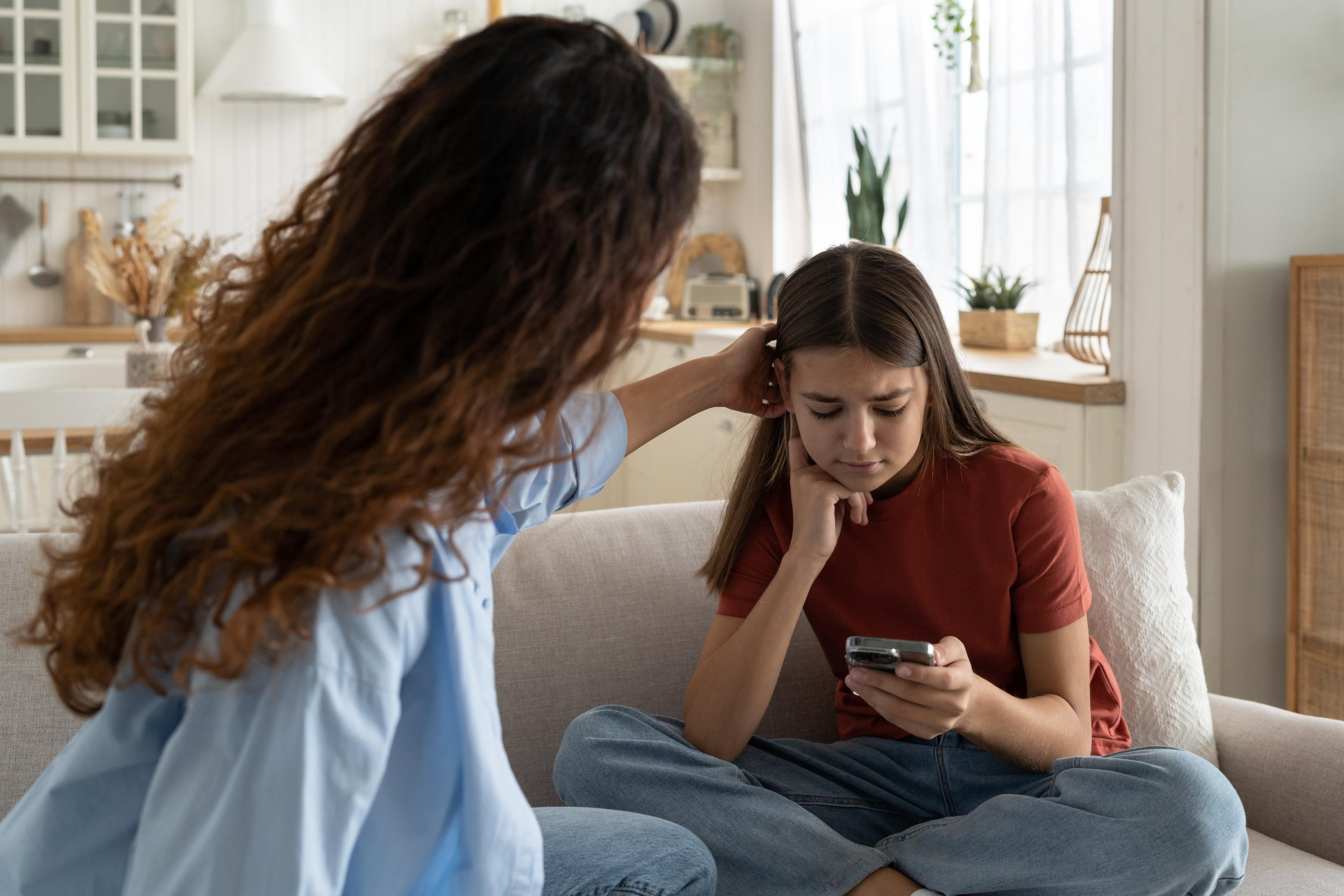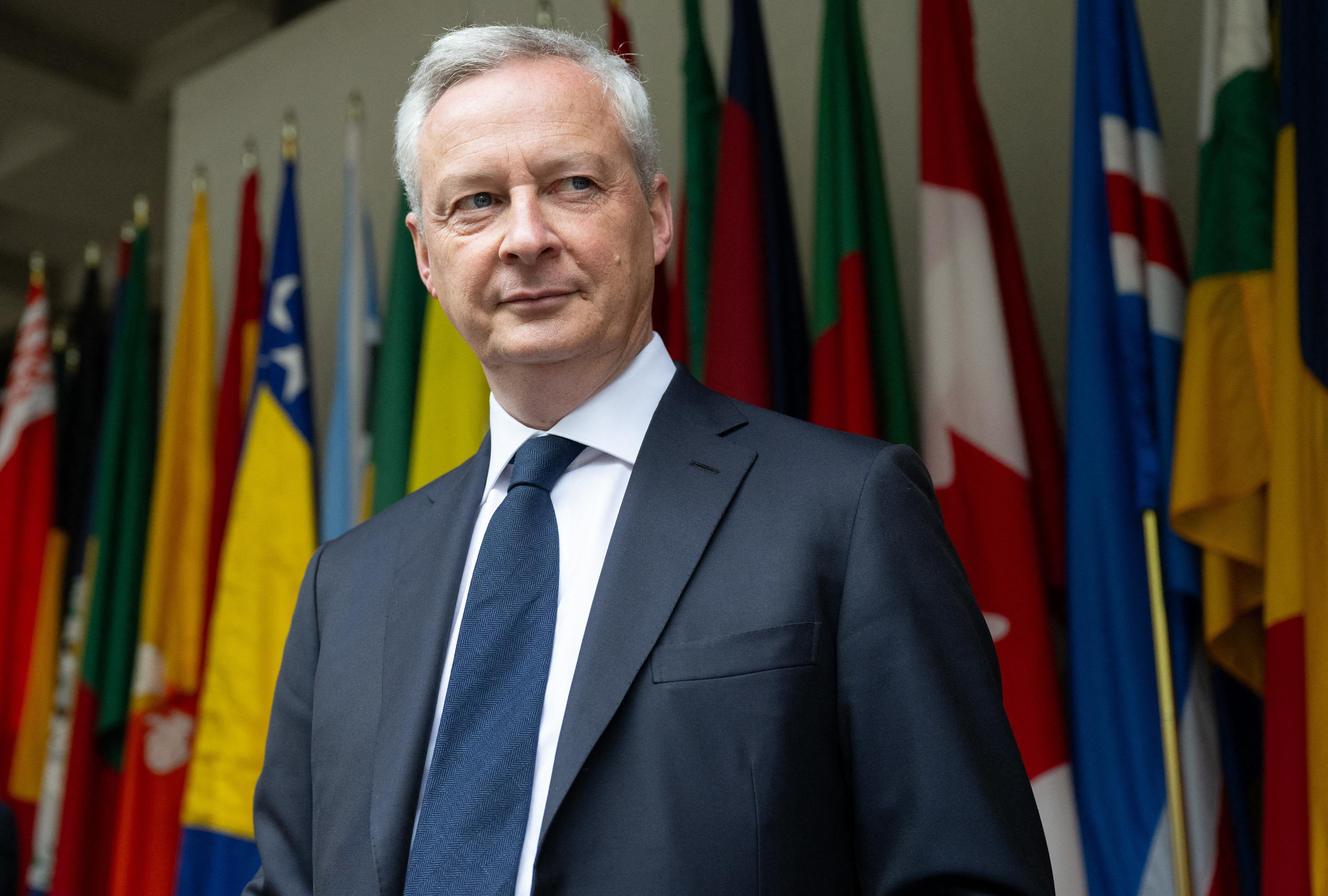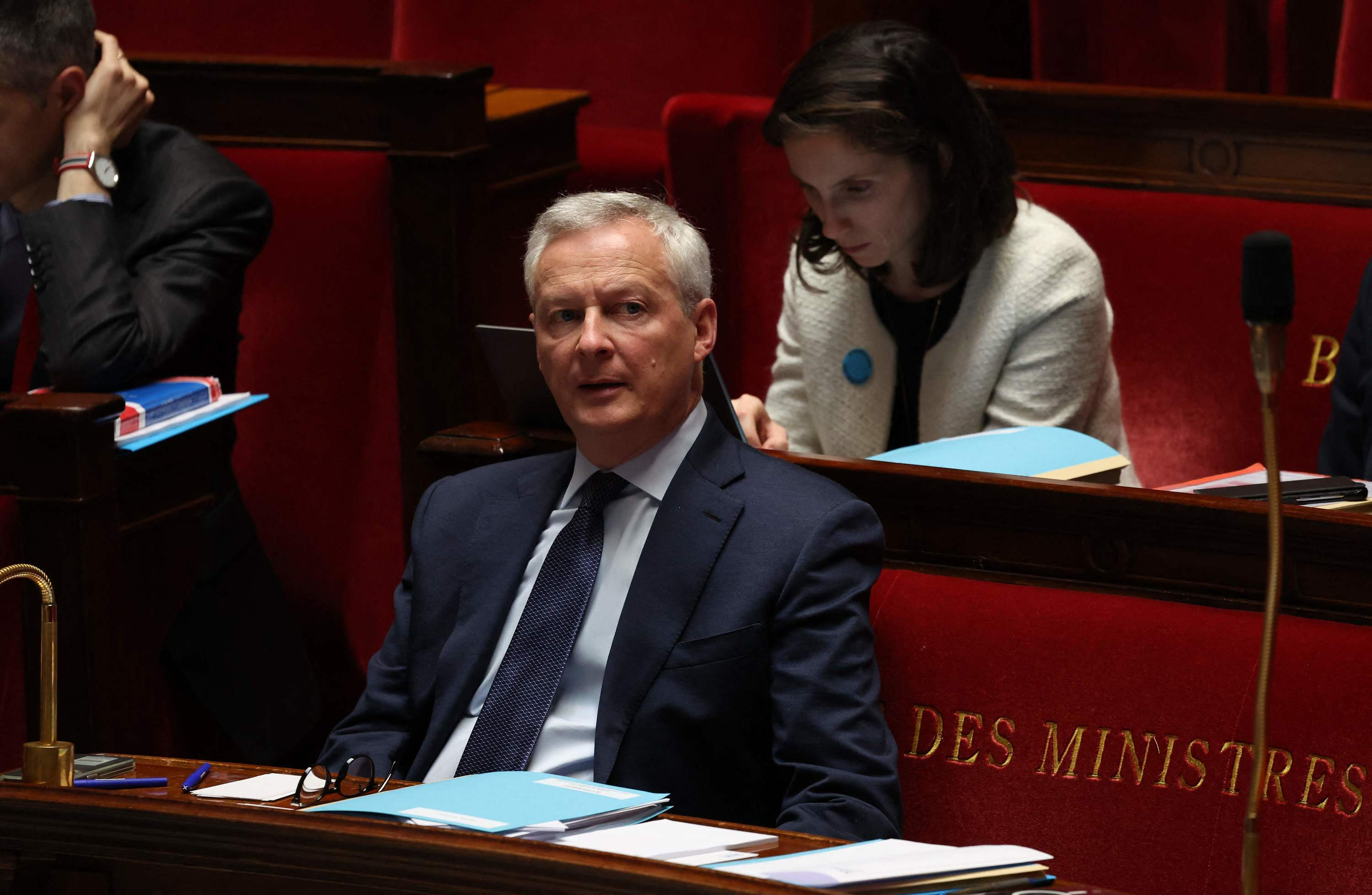From the outset on Tuesday evening, during his press conference from the Élysée, Emmanuel Macron promised “to make France stronger and fairer” around his concept of “civic rearmament”, emphasizing youth with the return uniforms at school and the regulation of screens. “Each generation of French people must learn what the Republic means”, expressed the Head of State, believing that this would involve “strengthening support and demands towards parents” , as well as by “the resumption of control of our screens which, too often, confine where they should liberate”. In addition, the Head of State announced his wish to “determine the proper use of screens”, “on the recommendation of experts”. Before launching: “Because the future of our societies depends on it.”
A firm speech from this president driven by the ambition to fight against disinformation, which he considers too present on social networks in particular. “If we have adolescents and future citizens whose relationship with the truth has been poorly constructed on social networks where the difference between the truth and the untruth was not clear, hello the generation of conspiracy theorists,” a- he quipped, before detailing the solutions already put in place during his five-year term to better control children's screen time: "the ban on cell phones in middle school", "the accountability of content broadcasters", "the control parental care on phones.
But is it even effective and how can we go further, when Emmanuel Macron intends to “restrict” or even “prohibit” the access and screen time of the youngest? This Wednesday, the Élysée assured that initial recommendations should be made before the end of March on this subject, while the President of the Republic decided to refer to a commission of twelve experts. It will, among other things, have the heavy task of developing a consensual doctrine and making proposals on “the proper use” of screens “for our children”, in families, at home and at school. The commission “will not work in isolation”, specifies the Élysée in Le Figaro. The instructions it produces must also take into account the nature of the content and the age of the users, who are faced with very different problems depending on their age.
In the meantime, there are a large number of applications, free or paid, available to parents to limit screen time, to prohibit access to certain content or even to geolocate the child in question. For example, we can cite “Family Link”, a free app developed by Google. It allows in particular to locate the smartphone or tablet remotely, to define usage times after which it is no longer possible to turn on the phone, to prohibit access to certain sites but also to limit the time spent on certain applications like TikTok or Instagram.
Same thing, in the paid version, with Kidslox, which allows - for a subscription - on the child's smartphone or tablet "to define a screen time limit", to "remotely lock" the phone, or even to “Block” it altogether at certain times during homework time, dinner time or rest time. And the list of applications developed expressly to help parents control screens is still long with FamiSafe, Qustodio, Kids360 and Kroha. All of them have in common that they offer remote control, sometimes of several devices at the same time, and that they lock access to certain content available on the internet and to certain applications.
In addition, other more original applications have been developed, making it possible to limit the time access to a game for example, like "Nintendo parental control", or to reward young people when they reduce their time. even his screen time. This is particularly the case of Balnz, a Belgian application, “which rewards young people when they improve their screen time”. The prize is “five euros of pocket money”, “the organization of a laser game with the family” or even “a subscription to a magazine”. So many rewards which motivate the adolescent to “play the game” by stopping his own.

 What is chloropicrin, the chemical agent that Washington accuses Moscow of using in Ukraine?
What is chloropicrin, the chemical agent that Washington accuses Moscow of using in Ukraine? Poland, big winner of European enlargement
Poland, big winner of European enlargement In Israel, step-by-step negotiations for a ceasefire in the Gaza Strip
In Israel, step-by-step negotiations for a ceasefire in the Gaza Strip BBVA ADRs fall almost 2% on Wall Street
BBVA ADRs fall almost 2% on Wall Street Sánchez cancels his agenda and considers resigning: "I need to stop and reflect"
Sánchez cancels his agenda and considers resigning: "I need to stop and reflect" The Federal Committee of the PSOE interrupts the event to take to the streets with the militants
The Federal Committee of the PSOE interrupts the event to take to the streets with the militants Repsol: "We want to lead generative AI to guarantee its benefits and avoid risks"
Repsol: "We want to lead generative AI to guarantee its benefits and avoid risks" Osteoarthritis: an innovation to improve its management
Osteoarthritis: an innovation to improve its management The yen jumps 3% then falls again, amid speculation of Japanese intervention
The yen jumps 3% then falls again, amid speculation of Japanese intervention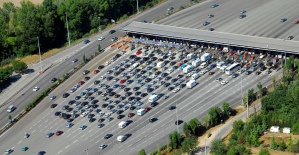 A very busy Friday on the roads of Île-de-France before the Ascension Bridge
A very busy Friday on the roads of Île-de-France before the Ascension Bridge Fraud: the government is preparing new measures for the fall
Fraud: the government is preparing new measures for the fall Nike breaks the bank to keep the Blues jersey
Nike breaks the bank to keep the Blues jersey Madonna ends her world tour with a giant - and free - concert in Copacabana
Madonna ends her world tour with a giant - and free - concert in Copacabana Harry Potter: Daniel Radcliffe “really saddened” by his final breakup with J.K. Rowling
Harry Potter: Daniel Radcliffe “really saddened” by his final breakup with J.K. Rowling Leviathan, New York Trilogy... Five books by Paul Auster that you must have read
Leviathan, New York Trilogy... Five books by Paul Auster that you must have read Italy wins a decisive round against an American museum for the restitution of an ancient bronze
Italy wins a decisive round against an American museum for the restitution of an ancient bronze Omoda 7, another Chinese car that could be manufactured in Spain
Omoda 7, another Chinese car that could be manufactured in Spain BYD chooses CA Auto Bank as financial partner in Spain
BYD chooses CA Auto Bank as financial partner in Spain Tesla and Baidu sign key agreement to boost development of autonomous driving
Tesla and Baidu sign key agreement to boost development of autonomous driving Skoda Kodiaq 2024: a 'beast' plug-in hybrid SUV
Skoda Kodiaq 2024: a 'beast' plug-in hybrid SUV The home mortgage firm rises 3.8% in February and the average interest moderates to 3.33%
The home mortgage firm rises 3.8% in February and the average interest moderates to 3.33% This is how housing prices have changed in Spain in the last decade
This is how housing prices have changed in Spain in the last decade The home mortgage firm drops 10% in January and interest soars to 3.46%
The home mortgage firm drops 10% in January and interest soars to 3.46% The jewel of the Rocío de Nagüeles urbanization: a dream villa in Marbella
The jewel of the Rocío de Nagüeles urbanization: a dream villa in Marbella Europeans: a senior official on the National Rally list
Europeans: a senior official on the National Rally list Blockade of Sciences Po: the right denounces a “drift”, the government charges the rebels
Blockade of Sciences Po: the right denounces a “drift”, the government charges the rebels Even on a mission for NATO, the Charles-de-Gaulle remains under French control, Lecornu responds to Mélenchon
Even on a mission for NATO, the Charles-de-Gaulle remains under French control, Lecornu responds to Mélenchon “Deadly Europe”, “economic decline”, immigration… What to remember from Emmanuel Macron’s speech at the Sorbonne
“Deadly Europe”, “economic decline”, immigration… What to remember from Emmanuel Macron’s speech at the Sorbonne These French cities that will boycott the World Cup in Qatar
These French cities that will boycott the World Cup in Qatar Mercato: Verratti at Barça? A track studied
Mercato: Verratti at Barça? A track studied Rugby: after the defeat during the Six Nations, the Blues will meet the English in September for a test match
Rugby: after the defeat during the Six Nations, the Blues will meet the English in September for a test match Premier League: Liverpool unveils its new jersey for next season
Premier League: Liverpool unveils its new jersey for next season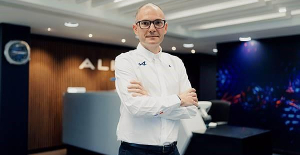 Formula 1: Alpine holds its new executive technical director
Formula 1: Alpine holds its new executive technical director